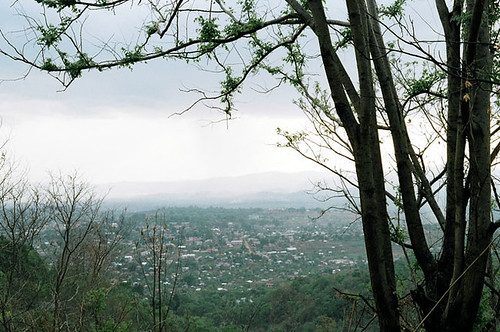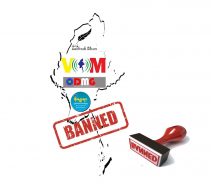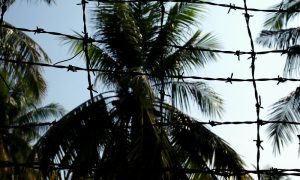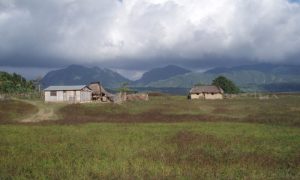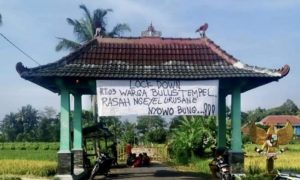Shan State in Myanmar, bordering China and with illicit border crossings, has a high risk of coronavirus transmission. The region is grappling with the return of large numbers of migrant workers from Thailand and China, as a result of coronavirus lockdowns and job losses. Yet in a highly concerning action, the Myanmar Army has prevented the work of medical teams of the Restoration Council of Shan State (RCSS) in Shan State, which has signed the Nationwide Ceasefire Agreement (NCA) with the Myanmar government.
Official reports of the Myanmar government on April 24 disclosed 6 confirmed cases in Shan State with 217 under investigation, although testing in Myanmar is low so the actual figure could be far higher.
In a number of instances the Myanmar Army’s Light Infantry Battalion No. 153 has intercepted RCSS’s medical teams and troops . RCSS medical teams have been providing medical support to communities who otherwise have little or no access to medical treatment. The Myanmar Army however, has warned locals against getting testing and treatment from RCSS medical teams.
On March 26, about 40 troops from the Myanmar Army’s Light Infantry Battalion 519 raided a base of the RCSS in Mongton district. On April 15, the Myanmar military prevented an RCSS medical team from carrying out their activities, attacking troops in Shan State, against the rules set out in the ceasefire. On April 23, it was reported that Myanmar soldiers threatened villagers with imprisonment if they accept face masks from RCSS medics.
These actions clearly go against the UN and civil society calls for a halt to military operations around the world, with an ‘immediate global ceasefire in all corners of the world’.
While RCSS is prevented from carrying out their urgent coronavirus response, Shan State Progressive Party (SSPP), another of the two powerful Shan armed groups in Shan State, is allowed to cooperate with the community in fighting COVID-19 in its territory.
At present, the Myanmar military has refused to cease military operations, even when the country is under threat from COVID-19. The military appears to be worried that the RCSS and other armed groups will gain political points because of the anti-COVID 19 countering activities. In these areas of contested sovereignty, the military is perhaps afraid that the biopolitics of coronavirus in ethnic minority areas could undermine the centralized system that is essential for their power and privilege.
Indigenous Shan organizations may be the most effective at responding to COVID-19 in ethnic Shan-speaking areas. The work of the UWSA, NDAA and the SSPP helps to reduce the government’s burden. At present, the Shan State government has only about $360,000 in funding for disaster management and is struggling to combat COVID-19.
Similarly, in Karen State, the Karen National Union (KNU), also NCA signatories, have been playing a key role—in some cases with local government—responding to the pandemic and carrying out prevention activities, including with the large numbers of migrant returnees from Thailand.
In the KNU’s Brigade 5 area conflict has intensified, with the military accused of violating the NCA as part of roadbuilding activities. This is contentious at any time given the politics of sovereignty in the area, but particularly concerning during the pandemic. On March 31, a community leader was killed by Myanmar troops.
In the KNU’s Brigade 1 area, the military is bullying the KNU to end their COVID-19 response, accusing the KNU of violating the NCA by implementing coronavirus prevention activities in Karen communities. This has heightened tensions in the area, causing increased risk and uncertainty for local communities, and impeding the local coronavirus response.
COVID-19 gives cover for threats to freedom of information and expression in Myanmar
An ongoing crackdown on freedom of expression is impacting the access to essential information.
According to the NCA, both parties must inform signatories and receive permission for troop movements into each other’s territory. Continued military action against ceasefire groups like RCSS and the KNU, in breach of the NCA, endangers peace.
In many cases, remote, ethnic minority communities cannot access state healthcare or do not trust it, a legacy of decades of ethnic conflict, repression and patterns of human rights abuses inflicted against civilians as part of counterinsurgency. Health departments of ethnic armed organizations are best equipped to provide culturally-sensitive services, in ethnic minority languages. It is the responsibility of donors and international NGOs to be conflict sensitive and not take sides, providing support to both the Ministry of Health and ethnic health departments, and speaking out when the Myanmar military steps in.
It is too early to say if the 28 April announcement of a government committee to work with ethnic armed organisations is a positive step or another hollow committee. It can only be effective if the military can be reined in and state and ethnic health departments work together on an equal basis, without impediments to the operation of ethnic health organisations in their communities. Collaboration must be follow the principles laid out by the Health Convergence Core Group. This will not only provide better health outcomes and a measure of peace during the COVID-19 outbreak but also contribute to lasting peace in Myanmar.
 Facebook
Facebook  Twitter
Twitter  Soundcloud
Soundcloud  Youtube
Youtube  Rss
Rss 